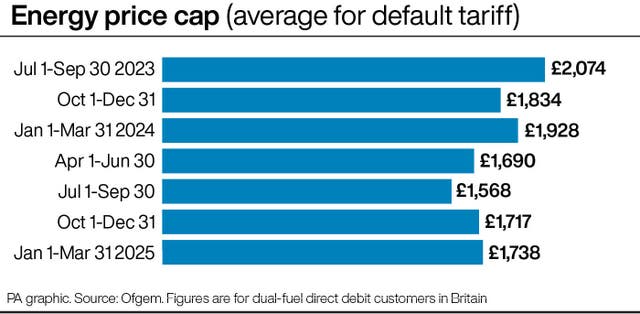
Shelagh Fogarty 1pm - 4pm
28 November 2024, 13:54

Companies controlled by Czech billionaire Daniel Kretinsky own power stations in Hull, Devon and Northern Ireland.
The Czech billionaire planning to buy Royal Mail saw a second year of large profit from his gas-fired power stations in England, after a period of soaring energy prices caused by Russia’s invasion of Ukraine.
Daniel Kretinsky’s gas power plant near Hull brought in £141 million of pre-tax profit last year, following a period of “exceptionally high” commodity prices caused by the war, according to accounts filed this month.
South Humber Bank (SHB) power station, which is owned by Mr Kretinsky’s EP UK Investments, is capable of powering about 1.2 million homes when running at full capacity, roughly equivalent to the size of Greater Manchester.
The power station also made £143 million in 2022, compared with a £26 million loss in 2021, before the conflict caused gas and electricity prices to skyrocket.
Separately, Mr Kretinsky’s deal to buy Royal Mail is close to being finalised, according to reports, after his conglomerate EP Group agreed to buy the postal service’s parent company International Distribution Services (IDS) earlier this year.
The takeover is currently being reviewed by the Government under the National Security and Investment Act.
The 49-year-old, known as the “Czech sphinx” because of his quiet, inscrutable style, is an entrepreneur and lawyer with a net worth of £6 billion, according to the Sunday Times Rich List.
He built his fortune in the energy industry, and has assets spanning the Czech Republic, Germany, Italy, Slovakia, the Netherlands and the UK.
Power generators have come under increasing levels of scrutiny for making outsized profits while household energy prices spiked in recent years.
Gas-fired power stations were not targeted by a windfall tax introduced in 2022 designed to offset the cost of rising bills because they needed to buy gas in advance while prices were rising.

Nonetheless, many have announced large increases in revenue and profit in the years since.
In SHB’s most recent accounts, directors wrote: “In late 2022, during this time of high commodity prices forward hedges were sold by the company which included power sales relating to the first quarter of 2023.”
EP UK Investments also owns a gas power station near Plymouth, in the south west of England, which made £129 million in profit last year, plus sites in Northern Ireland and the Republic of Ireland.
Ofgem confirmed typical household bills are set to rise to £1,736 in January, a 1.2% rise on current levels.
Bills are significantly lower than they were at the height of the energy price spike in early 2023, when typical bills rose to more than £4,000, but they remain much higher than pre-crisis levels.
EP UK Investments declined to comment.